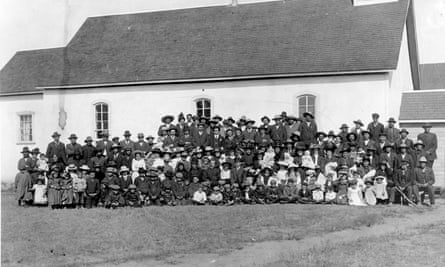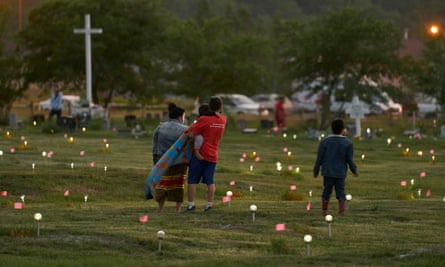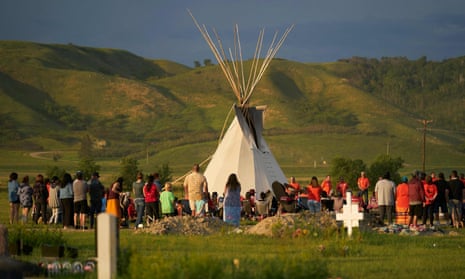First Nations people across Australia are mourning with Canadian First Nations families as evidence mounts of hundreds of deaths of children at residential schools.
We are standing with our Canadian First Nations brothers and sisters on these recent horrific discoveries.
The massacres, forced assimilation and cultural genocide in Australia is something this country has yet to face up to. My own experience of being removed from my family and taken thousands of kilometres away to a mission home is part of that history.
The massacres, removal of children, poisonings and atrocities inflicted on Australia’s First Nations peoples were designed to exterminate us, to erase the entire race of my people on this planet.
I think about the day I was taken every day. The process was a continuing act of colonisation and assimilation and the aims of it was akin to being buried alive. That is how I feel every day.
Last week it was announced that more than 700 unmarked graves had been discovered by the Cowessess First Nation at the Marieval Indian residential school in Saskatchewan province.

Added to the recent 215 graves discovered by the Tk’emlups te Secwépemc First Nation at the former Kamloops Indian residential school in British Columbia last month, and further graves on other sites, the number of graves is more than 1,000.
From colonisation, many First Nations in Canada lost their lands, and from the late 1800s, First Nations children in many parts of Canada were forced to attend residential schools distant from their families as part of an assimilation policy.
Frequently the schools were run by religious orders connected with Christian churches. They forbade children speaking in their First Nations languages and other cultural practices, often through violence. Many children suffered abuse, including deprivation of food, physical violence and sexual abuse.

The experiences in Canada are echoed here in Australia. Until there is truth-telling in Australia about the colonisation process across the whole of the continent, the process of reconciliation remains superficial. The country and its political leadership needs to address these issues as a matter of urgency.
It is also a responsibility to call out the Australian government and say: you are guilty of the same reticence to do anything to support generations with the suffering of their past.
Open your eyes, your heart, and your chance to change how we treat each other, and how we treat our First Nations people, and honour our history, our truth.
As an Arrernte Elder, I and my family and community have a strong obligation to stand together in times of discoveries like these. To stand in solidarity, in truth telling, in solemnity, and mark the time this situation occurred.
It was the aspiration of the assimilation policy and programs to allow us to die a thousand deaths every day. Telling my story every time is perpetual grief. There is no respite. There is no relief. There is no respect, and no recompense.
William Pengarte Tilmouth is an Arrernte Elder and chair of Children’s Ground
